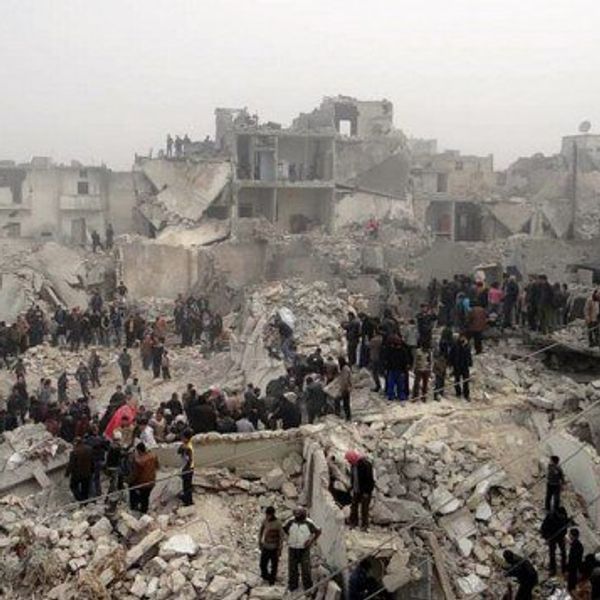This coming Sunday, April 24, 2016, is Armenian Genocide Remembrance Day. This will mark the 101st anniversary of the Armenian Genocide, an atrocity that killed over 1 million Armenians and displaced countless others. Shockingly, many deny that the Armenian Genocide happened at all. If you don't know much about the Armenian Genocide, don't worry. I'll do my best to help you get a better idea of what happened and why it's important. Here are some facts about the genocide and reasons we need to recognize it.
This wasn't even the first mass killing of Armenians that happened.
Although the Armenian Genocide Remembrance Day is internationally recognized as April 24, 1915, there was a mass killing of Armenians that happened before the events that took place during World War I. The first reported Armenian massacre was between 1894-1896. Hundreds of thousands of Armenians were killed.
What ignited the start of these mass killings?
After Armenia, a Christian country, was absorbed by the Ottoman Empire, that was Muslim, Armenians, as well as several other minorities, were discriminated against and subjected to unfair treatment and loss of voting and political rights. This was only the beginning of discrimination against Armenians based on religion and nationality. Turkish Sultan Abdul Hamid II, the ruler at the time, doubted the allegiance of the Armenian population, fearing that the Armenians in the Ottoman Empire were pledging loyalty to Christian governments (like Russia) and said, "I will soon settle those Armenians. I will give them a box on the ear which will make them…relinquish their revolutionary ambitions." Shortly thereafter, mass killings and pillaging of Armenian towns commenced, which was the first mass killing that I mentioned previously. In 1908, The Young Turks, a nationalistic reform group, overthrew the sultan and took over. The Young Turks had a plan to "Turkify" the Ottoman Empire, thus meaning that non-Turks had to leave one way or another.
What happened on April 24, 1915?
As World War I intensified, Turkey allied with Germany and the Austro-Hungarian empire. The Turks thought that Armenians would become allies with the enemy if they would gain independence. And thus, the happenings of the night of April 24, 1915, commenced. According to this article, about 250 scholars and leaders in the Armenian community were gathered and either killed or deported. This was the beginning of the Armenian Genocide that happened from 1915-1918.
How many Armenians died?
This is one of the most controversial points about the Armenian Genocide. Most sources say that approximately 1.5 million Armenians were killed in this genocide, and it is widely accepted that this number is the most accurate. However, this number does not take into account those that were deported and those that died of starvation and disease on the way to other countries.
Does the United States recognize the Armenian Genocide?
In short, the answer is no. Because the U.S. is allies with Turkey, using the term "genocide" might cause tension between the two countries. Turkey also does not recognize the Armenian Genocide and shut down attempts by U.S. politicians to officially recognize it.
Why do we need to recognize it?
There is an abundance of evidence that supports the validity of the atrocities of the Armenian Genocide. Photographic evidence may be found here (warning: graphic content.) The International Association of Genocide Scholars wrote an open letter to historians who deny the Armenian Genocide, which outlines the overwhelming abundance of evidence that the Armenian Genocide did indeed happen. This genocide is very real, and has tragically not been recognized by the entire world yet.
What do we do from here?
For this coming Sunday, I challenge all of you to spread awareness throughout the week, whether it be wearing the colors of the Armenian flag, wearing a forget-me-not flower pin or simply educating others about the genocide. If you would like to read more, here is a great website that will give you in-depth explanations about the Armenian Genocide.
As an Armenian, I feel that it is my duty to honor the memory of my great-great-grandparents who perished and my great-grandfather who was orphaned at age 12 with his five younger siblings. I hope that one day the Armenian Genocide will be recognized by all nations. Remember, education and recognition are key. Always remember and demand recognition.





















